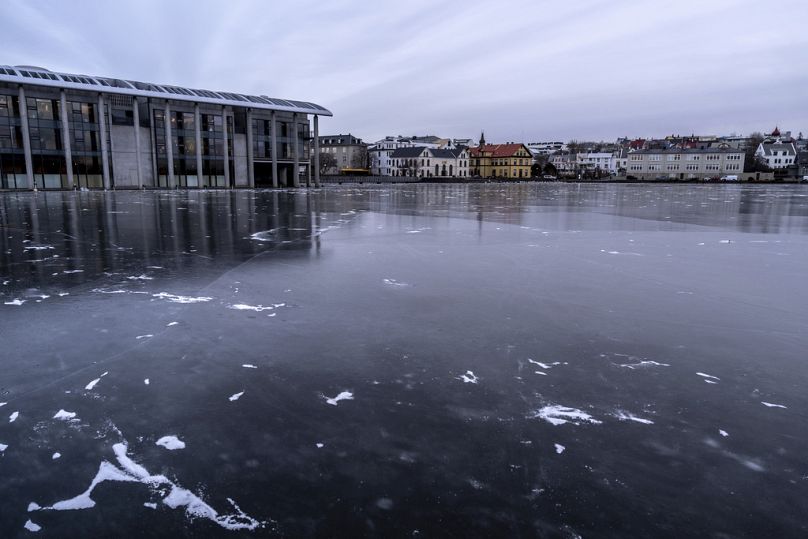Voting to elect a new parliament began in Iceland on Saturday, which opinion polls suggest is likely to unseat the ruling coalition after seven years in power.
The snap parliamentary election in the North Atlantic island nation was called in October after disagreements over immigration, energy policy, and the cost of living crisis forced Prime Minister Bjarni Benediktsson to pull the plug on his coalition government.
Bjarni Benediktsson came to power in April after his predecessor resigned. He has struggled to hold together the unlikely coalition of his conservative Independence Party, the centrist Progressive Party and the Left-Green Movement.
Support for the three governing parties appears to have plunged in Iceland, and the cost-of-living crisis has also reignited an EU membership debate for the island nation of about 400,000 people.
Here’s what to know about the polls
Voters will choose 63 MPs by voting in regional constituencies and using proportional representation. Parties need at least 5% of the vote to win seats in parliament.
About ten parties are taking part - two parties more than the outgoing parliament, where eight parties were represented.
Turnout is traditionally high by international standards, with 80% of registered voters casting ballots in the 2021 parliamentary election.
The poll is Iceland’s sixth general election since the 2008 financial crisis devastated the economy of the country and ushered in a new era of political instability.
A windswept island near the Arctic Circle, Iceland normally holds elections during the warmer months of the year, but on 13 October, Benediktsson decided his coalition couldn’t last any longer. The prime minister then asked President Halla Tómasdóttir to dissolve the Althingi.
“The weakness of this society is that we have no very strong party and we have no very strong leader of any party,’’ said Vilhjálmur Bjarnson, a former member of parliament. “We have no charming person with a vision. That is very difficult for us.”
Ahead of the polls, a fierce snowstorm hit the eastern part of the country, prompting concerns over a potential delay in the vote count.
Iceland describes itself as arguably the world’s oldest parliamentary democracy. The island’s parliament, the Althingi, was founded in 930 by the Norsemen who settled the country.
Saturday's poll opened at 0900 GMT and will close at 2200 GMT, with a final result expected on Sunday morning.












